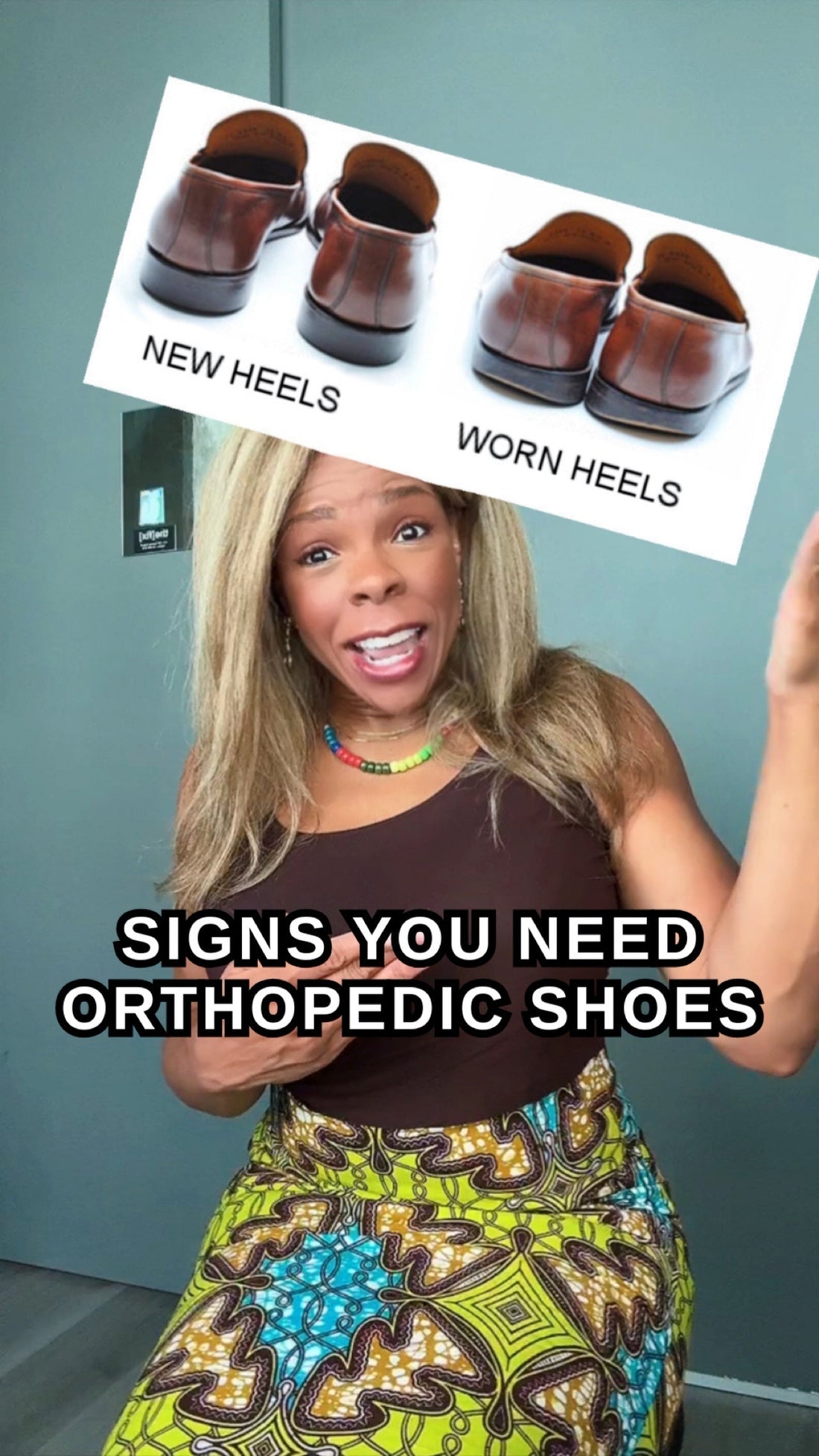
4 Signs You Should Be Wearing Orthopedic Shoes
Share
You may have been recommended orthopedic shoes or you may be wondering if you need orthopedic shoes based on how your feet and body are feeling. Given the amount of the time we spend sitting and the fact that most of our time spent standing or walking is on concrete (yes -there is even concrete under your carpets and wooden floors) - there's a good chance you would benefit from orthopedic shoes. Read below and if any of these apply to you - it's time for some proper shoes!
1. You suffer from foot, ankle, knee, hip or back pain when you’re on your feet for a long period of time. If you start to experience pain after standing for just a short period of time - you would also likely benefit from orthopaedic shoes and should see a health care practitioner as soon as possible. Faulty gait (the way you walk) like over-pronation, foot instability, injuries, foot arthritis and poor biomechanics can lead to pain in your feet and the rest of the body and can be helped with shoes that provide stabilization, improve biomechanics and support adequately.
2. Uneven wear on your shoes. If you notice that one area of your shoes wears out faster than other areas - you likely need orthopaedic shoes. You will notice the uneven wear on the soles of your shoes and in some cases you may even have parts of the insole wearing away. These signs of wear are most commonly due to over-pronation. When you over-pronate (rolling in too much when you walk) - you can benefit from an orthopaedic shoe that controls over-pronation.
3. Your feet swell up after being on your feet for a long time. Feet that swell up typically have issues with circulation. Orthopaedic shoes help support proper alignment which can also improve circulation. They also have wider toe boxes to accommodate for the swelling. Pro-tip - If your feet tend to swell up, make sure you wear compression socks as much as possible with your orthopaedic shoes.
4. You’re over 30! By the age of 30 you have 3 decades of wear and tear on your body and collagen levels in the body have started to decline (at age 25!). Since collagen is part of the connective tissue found in ligaments, tendons and bones - as it declines so do the joints in your feet. Combined with the wear and tear and the breakdown of collagen - your feet need more support and targeted cushioning after 30, which can be found with good orthopaedic shoes. Wearing supportive orthopaedic shoes will reduce the wear and tear on not only your feet but the rest of your body since our feet hold the weight of the entire body. With proper support - at least it won’t feel like you’re carrying the weight of the world.
dr LIZA shoes are not your grandmas orthopedic shoes so you can get all the supportive benefits while still looking amazing!
WATCH THE VIDEO HERE
